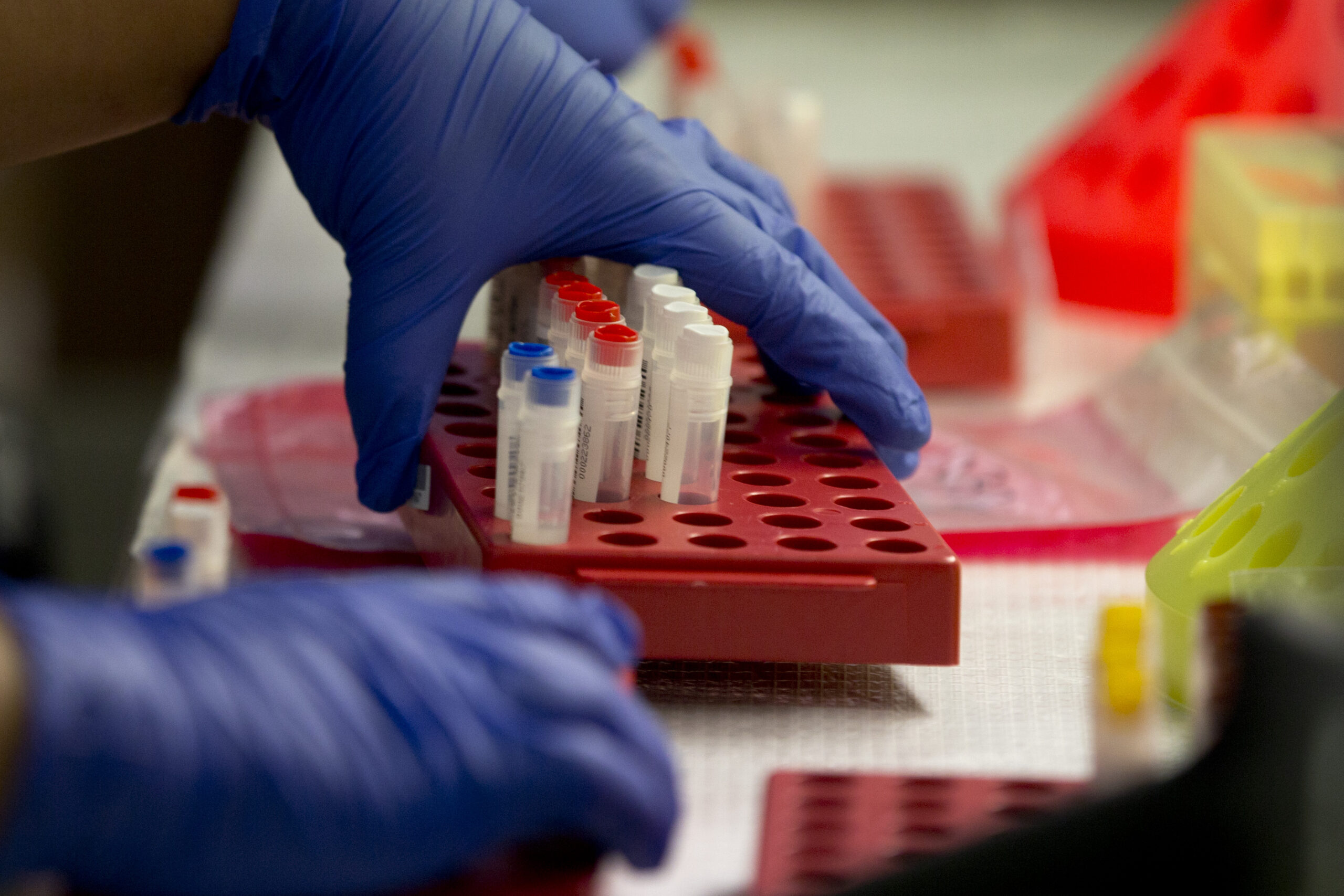
Do people have a genetic destiny, or are they more shaped by their environment and lived experiences? Wisconsin is front and center in ending the classic “nature vs. nurture” debate.
With the study of social genomics — or sociogenomics — scientists argue that genes and environment truly coexist and influence another throughout a person’s lifetime.
University of Wisconsin-Madison associate professor Silvia Helena Barcellos said social genomics really just got started roughly 10 years ago, around the same time that scientists decoded the human DNA sequence and began to better understand it.
Stay informed on the latest news
Sign up for WPR’s email newsletter.
Helena Barcellos studies public affairs and population health and is part of UW-Madison’s Initiative in Social Genomics, which launched in 2018.
Last week, UW’s campus hosted the 2025 Advances in Social Genomics Conference.
The initiative combines sociology and policy research with the work of health care professionals and biostatisticians.
On WPR’s “Wisconsin Today,” a trio of UW-Madison faculty from the initiative said scientists and researchers from around the world convened in Madison to discuss the future of a field that largely wasn’t possible before the explosion of new gene technology in recent decades.
“When I first got into this field, I was skeptical, like a healthy skepticism,” Helena Barcellos said. “And the more I worked with the data, the more I was amazed at how predictive it was, above and beyond more traditional measures we had in the social sciences.”
“And that’s where the value added comes in, because it’s something that is allowing us to move our knowledge forward,” she added.
Examples of social genomics
Lauren Schmitz is a UW-Madison associate professor of public affairs. Schmitz said the “bread and butter” of the social genomics field are population health studies that look into a group’s medical conditions, while also collecting their DNA for research. DNA-gathering technology has become cheap enough that researchers can now regularly gather it from whole groups for future study, she said.
“When we’re bringing together social data with molecular data, we really have to do team science,” she said.
Schmitz said her main focus has been on epigenetics and determining what a person’s “biological age” is compared to their actual age: While someone could numerically be 30 years old, they could have a “biological age” that’s much older or younger depending on their health choices in life, where they live and their genetics.
Jason Fletcher is a public affairs professor at UW-Madison. He gave an example of how states have used various taxation levels on tobacco products as an attempt to curb people’s smoking addictions. How a person’s genes mix with the “neighborhood deprivation” of where they live could both affect their ability to quit smoking, as well as other factors.
“It’s a neighborhood phenomenon that might cause stress and be related to low resources, that might differently affect an individual’s ability to stop smoking or deal with stresses,” he said. “Dealing with these stresses and having a variety of employment or other opportunities, all interact between these local environments and an individual’s gene factors.”
More information can come with more concerns
Helena Barcellos said many places, like Europe, now have DNA data connected to health registries and tax registries.
“It’s just a very exciting time for [social genomics] because this explosion of data, explosion of methods, really allows us to do so much and to learn so much about the intersections across these disciplines,” she said.
But with the increasingly widespread collection and use of people’s genetic data, there also come questions about the safety and privacy of such information.
Helena Barcellos said that as the field and its collection of genetic information continue to grow, it’s also important for the proper policy and regulation of such data to develop, as well.
Fletcher said America already has some protections on the books against health insurers and businesses discriminating against people based on their genetics.
“But those laws could be expanded and that’s something that our group really thinks about, both the pros and the cons,” he said. “It’s a very emerging field and I think this is an example of the promise of having many disciplines examining a field like this.”
